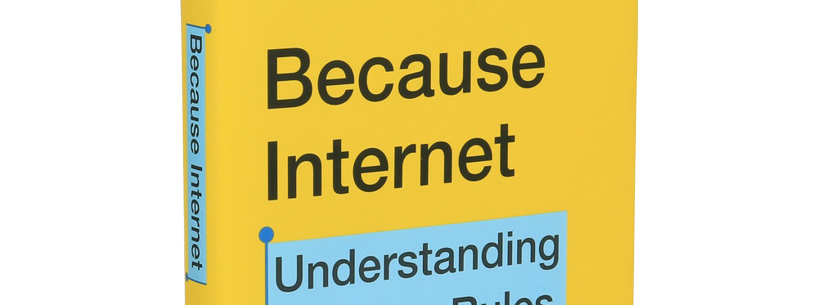Full Internet People
I really enjoyed Because Internet: Understanding how language is changing, and thought that Gretchen McCulloch’s demarcation of internet users seemed pretty accurate and insightful.

According to McCulloch’s groupings, I would be a ‘Full Internet Person’ as I first got properly online as a 15 year-old in 1996:
Full Internet People came of age with the beginning of the social internet in the late 1990s to early 2000s. They joined an internet that had already established many of its communicative norms, and they acquired them, not explicitly from a Jargon File or FAQ but implicitly, from their peers joining at the same time, via the same cultural alchemy that transmits which music is cool or which jeans are desirable. The internet is “full” for this cohort because they never questioned its social potential: How could they, when they began by using it to communicate more with people they already knew? It would be absurd to assert that the internet is asocial or that Internet People are somehow not real when a breakup that happened last night over IM is all anyone can talk about the next day at lunch.
As McCulloch comments, given how central the internet has been to my identity, it’s weird that it causes me so many problems in terms of parenting my own kids!
It is perhaps ironic that this Full Internet generation, the first to use the internet to baffle their parents collectively, is also the last to be baffled by their own children. While Fulls can draw on their own teen years to understand chat apps in the frame of instant messaging, or Tumblr in the frame of GeoCities, they didn’t have a digital childhood. They’re the first to reckon with unfamiliar questions like how much iPad time is too much for a toddler, what to do when a child stumbles across a disturbing parody version of a children’s cartoon, and whether to post photos and anecdotes of a child on social media when faraway relatives may enjoy them but the child may grow up to find them embarrassing.
McCulloch’s discussion nicely builds on some of the themes I explored in my thesis, and particularly when she talks about skills:
“[C]omputer skills” have become as meaningless a category as “electricity skills.” Like children of the offline kind of immigrants, second-generation internet kids do grow up fluent in the communication styles of their peers, but no generation anywhere has ever mastered the skills of adulthood without mentorship. The Post Internet challenge is to parse out which tech skills are acquired incidentally while socializing and which skills were incidental a decade or two ago but now aren’t, and so need to be taught.
I thought this was particularly insightful:
But in a discussion of generations and cohorts, here’s the sharpest line dividing internet writers: Who is the imaginary authority in your head when you choose how to punctuate a text message? Is it the prescriptive norm of an offline authority, like your former English teacher or a dictionary? Or is it the collective wisdom of your online peers, the anticipation of their emotional reaction to your typographical tone of voice? The difference between how people communicate in the internet era boils down to a fundamental question of attitude: Is your informal writing oriented towards the set of norms belonging to the online world or the offline one?
A highly recommended read for anyone interested in how the internet is changing society, both linguistically and culturally.


